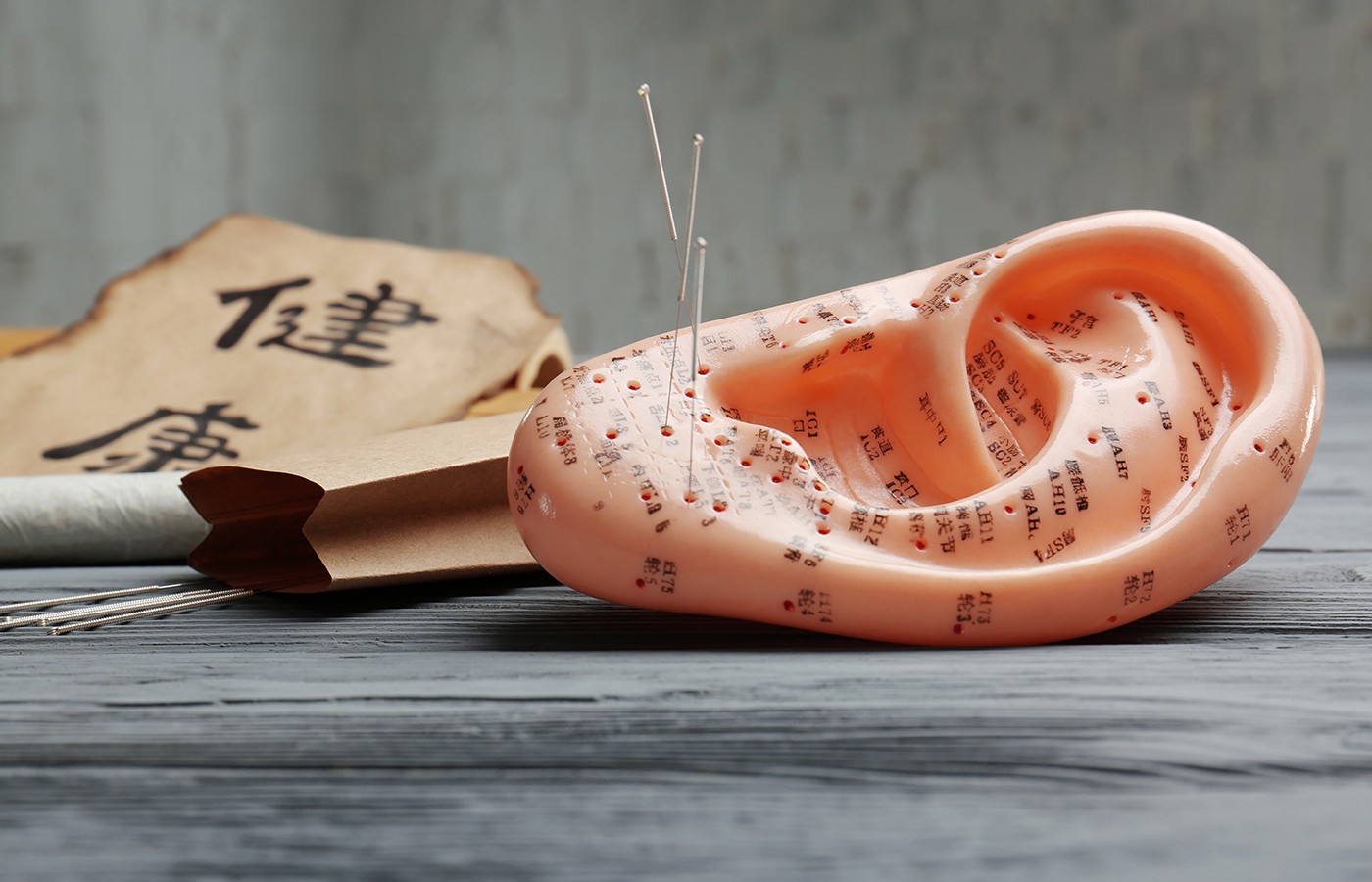One of the longest nerves in the body is known as the vagus nerve (VN). The VN is the 10th pair of cranial nerves that originates at the brain stem in the medulla oblongata. This nerve is part of the parasympathetic nervous system, which is a part of the ANS. Research suggests ear acupuncture can activate the VN.
New Research on Treating Depression: The Ears Have It?
- A randomized clinical trial suggests auricular acupuncture is effective for reducing symptoms of depression.
- The specific acupuncture (SA) treatment protocol consisted of 6 acupuncture points on the auricular pavilion chosen according to the diagnosis of depression by traditional Chinese medicine (Shenmen, subcortex, heart, lung, liver, and kidney).
- Both specific and nonspecific auricular acupuncture proved beneficial, with patients in both groups experiencing symptom improvement after three months.
According to the World Health Organization, nearly 300 million people worldwide experience depression, and more than 700,000 people die by suicide annually, making effective treatment options – particularly ones that don’t come with some of the potential side effects of standard Western medication – critical.
A randomized clinical trial1 suggests auricular acupuncture is effective for reducing symptoms of depression. The study, conducted at four university research centers in Brazil and involving adults (ages 18-50) diagnosed with moderate or moderately severe depression, randomized patients to one of two treatment groups for comparison, featuring a six-week intervention period and three months of follow-up.
One group received specific auricular acupuncture, while the second received nonspecific AA. Both groups received 12 sessions, with daily stimulation twice weekly for six weeks; 15-minute sessions, alternating the application on the right and left auricular pavilions for the first group. “The SA group’s treatment protocol consisted of 6 acupuncture points on the auricular pavilion chosen according to the diagnosis of depression by traditional Chinese medicine (Shenmen, subcortex, heart, lung, liver, and kidney). The NSA group’s acupuncture points were the external ear, the cheek and face area, and 4 nonspecific points in the helix region unassociated with mental health symptoms. A locator device was used to confirm which areas had neuroreactive points.”
The primary outcome measure assessed: at least a 50% reduction on the Patient Health Questionnaire–9 at the three-month mark. (The PHQ-9 had been utilized for diagnosing depression level in patients at baseline, with a score of 10-14 indicating moderate depression, and a score of 15-19 indicating moderately severe depression.)
Both specific and nonspecific auricular acupuncture proved beneficial, with patients in both groups experiencing symptom improvement after three months. “There was no statistically significant difference between groups for the primary efficacy outcome,” according to study findings, which appear in JAMA Network Open.
In terms of safety, the study authors noted: “First-line therapy for depression is medication, but several factors interfere with treatment access and adherence, such as system barriers and clinical and individual factors. Therefore, it is necessary to offer a wide range of evidence-based therapies to treat depression, aiming at person-centered mental health care. AA may be an option for patients who reject medication or psychotherapy because it has fewer adverse effects than pharmacological treatment. A systematic review of adverse events associated with AA found that most were transient, mildly intense, and tolerable. No severe adverse events were identified in our study, indicating that AA is a safe treatment.”
Reference
- de Oliveira Rodrigues DM, Menezes PR, et al. Efficacy and safety of auricular acupuncture for depression: a randomized clinical trial. JAMA Netw Open, 2023;6(11):e2345138.



